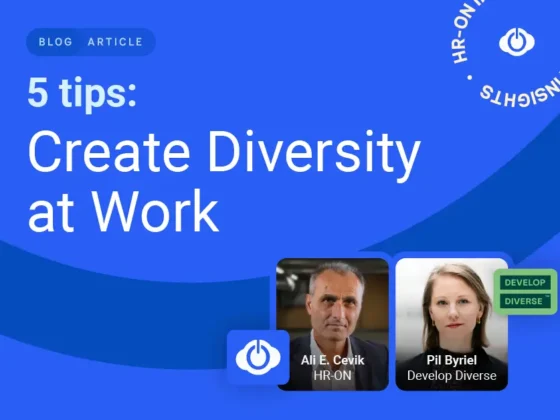Skills can be trained, but core values are essential. Recruitment based on core values, known as Value-based recruitment, proves most successful for companies looking for long-term investments. Value-based recruitment represents the concept on which HR-ON is built. The purpose is to create a system that simplifies and refines recruitment processes. And at the same time, a system which provides an opportunity to reflect the core values of the company.
LET CORE VALUES DECIDE
”Value-based recruitment” is, more specifically, applied by underlining the company’s core values in every step of the recruitment process. That implies considerations about what communication signals applicants and what other stakeholders perceive from your recruitment. More specifically, you must make a conscious choice about the design of your job advertisement, the job description, the search criteria and how you respond to the applicants.
DESIGN COMMUNICATES
“It looks good and leaves a professional impression when you put an extra effort in design. But it’s not only aesthetic. The design also shows who you are and what you find the most essential,” says the founder of HR-ON, Ali E. Cevik. Because of this, HR-ON offers to publish job advertisements as an integrated part of the company websites in individual designs. This is a feature that most clients of HR-ON use and appreciate: “Our visual expression is part of our DNA. Therefore, it’s obvious for us to integrate our job advertisements in Dyrberg/Kerns own website, “ says Pernille Stoltze, Administrator of HR at Dyrberg/Kern.
WIN-WIN SITUATION
For successful value-based recruitment, its important to focus the dialogue between applicant and company on core values instead of skills. This is beneficial for both sides. The applicant gains a better basis for assessment to decide whether the job appeals to him or her. Thereby, the chances of resulting with a long-life partnership improve.
Over the last years, salary, pension, and status were the most essential factors in an attractive job. Today, it is well known that the inner job qualities are even more important for creating true motivation and engagement in the job. Thus, a solid match between the parties’ values is likely to provide higher earnings for the company in the future.
WHAT ABOUT PROFESSIONAL SKILLS?
For some people, the orientation towards core values may seem a bit confusing. In fact, applicants are more often chosen based on the possession of measurable and professional skills. This also makes sense, because you hire someone when you need help to solve a problem. In this situation, you often need specific skills.
However, ‘value based recruitment’ does not mean that you shouldn’t look for skills at all. It just implies, that you shouldn’t base your decision on the applicant’s skills exclusively. Ali Cevik explains that “by focusing on both skills and core values, your chances of finding a truly dedicated employee, who will support your company goals wholeheartedly, will increase”. He continues: “You can’t consider the company worthy only because of sales and profit. The most important parameter is whether your staff possesses the potential of evolving professionally and personally. If they do so, you have a fertile ground for business growth.”




